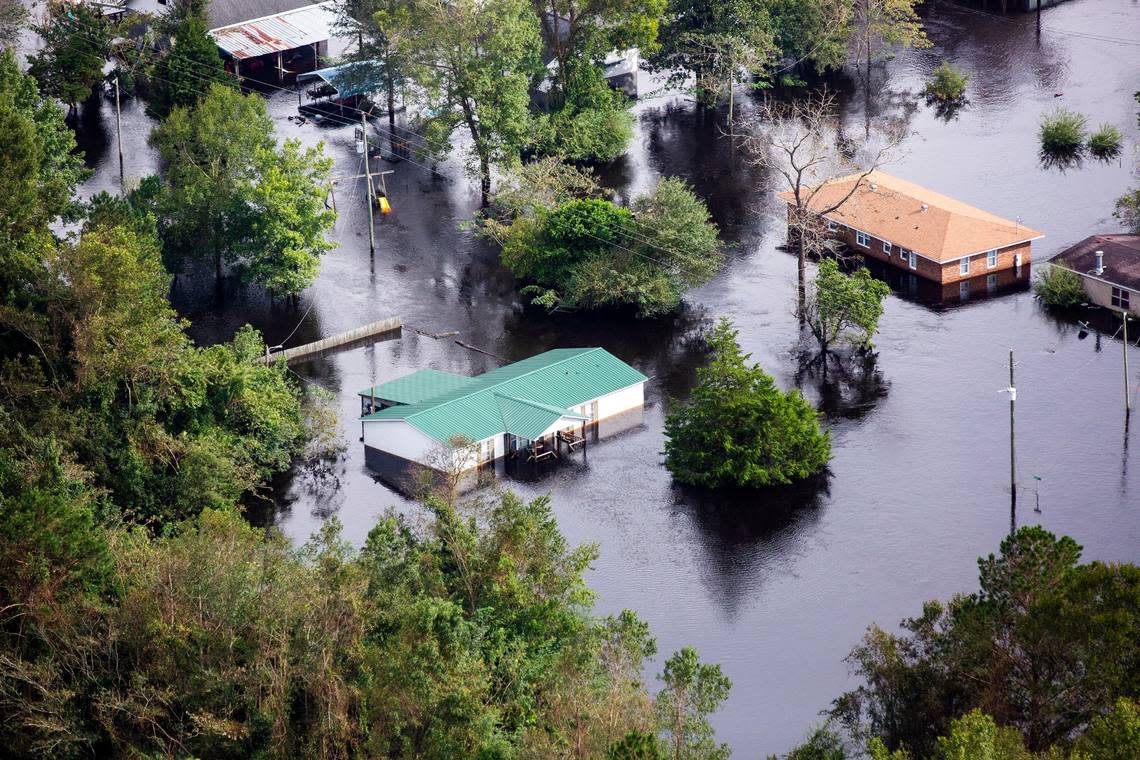New national climate change report is encouraging. Not so much for North Carolina | Opinion

In 2018, the Trump administration buried the fourth annual National Climate Assessment, releasing it the day after Thanksgiving with little comment.
This week the report, required by Congress every five years, received a prominent rollout by the Biden administration. Its findings are encouraging about a drop in greenhouse gas emissions, but are sobering about how fast the climate is changing, particularly for fast-growing North Carolina and the rest of the Southeast.
“There is some good news in this report but none of it is fast enough and none of it is enough both on the emission-mitigation side or on the resilience-adaptation side,” said Kathie Dello, North Carolina’s state climatologist and director of the North Carolina State Climate Office.
The report stresses that climate change is already upon us and finding ways to adapt to it are as important as finding ways to slow it.
“It’s a two-prong thing. We need to get people out of harm’s way now but we also need to be thinking about the next few decades and our reliance on fossil fuels and moving away from our reliance on that,” Dello said.
The evidence of climate change in North Carolina is clear. The state is experiencing its most significant drought in seven years, but is also coping with deluges. Snow is becoming rare as winters warm. This year Raleigh saw the highest temperature ever recorded in February – 85 degrees.
“The climate is exhibiting a long-term trend toward getting warmer,” said James Danco, a meteorologist with the National Weather Service in Raleigh.
On the coast, the sea level is rising, inland flooding is expanding and wildfire warnings are increasing across the state.
“The risks are moving faster than the pace of adaptation and resilience,” said Dello, who contributed to the national report’s Southeast chapter.
Those risks are compounded in North Carolina and across the Southeast, she said, because the population is growing rapidly and pressing into areas that are increasingly prone flooding and wildfires.
The change is also complicating agriculture. One year a hurricane floods fields, the next brings a drought.
“When you think about climate change, the extremes are getting more extreme,” she said. “People who have to make decisions about the weather are struggling with these curveballs the atmosphere keeps throwing us.”
In North Carolina, Gov. Roy Cooper has set ambitious goals to address climate change and transition to clean energy.
Peter Ledford, appointed by Cooper last year as the state’s clean energy director, said, “Are we moving in the right direction? Yes. Should we be doing more? Yes. And I think you can expect that type of leadership from the governor.”
Jim Warren, head of the advocacy group NC WARN, is a longtime critic of what he considers Duke Energy’s foot-dragging on converting to clean energy. He said Cooper has stepped up his support for clean energy, but more needs to be done to foster the expansion of solar energy, particularly with regard to adding rooftop solar panels on more homes and businesses.
“Collectively, as a state and as a human race, we are still being too dominated by monopoly corporations and fossil fuel interests,” he said.
Governments, businesses, utilities and environmental and social justice advocates deserve credit for the expansion of clean energy and the reduction in coal-burning power plants. But the political climate is still not changing as fast as the climate itself.
Even the pro-clean energy Biden administration has approved drilling for oil in Alaska’s remote North Slope. In North Carolina, Duke Energy has an outsized influence on the General Assembly and can blunt moves to aggressively accelerate the conversion to clean energy.
The new National Climate Assessment offers a vital measure of how far climate change has come and will advance. It will take leaps – not half-steps – to get ahead of it.
Associate opinion editor Ned Barnett can be reached at 919-404-7583, or nbarnett@ newsobserver.com


